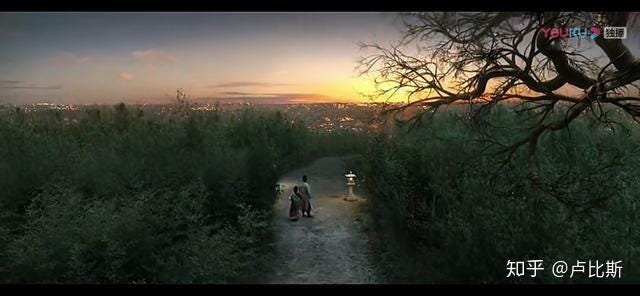
Leyou Hill Li Shangyin Later I felt out of sorts I drove Up the old mound Slant sun Nothing more glorious Only Dusk was coming down 李商隐 乐游原 向晚意不适,驱车登古原。 夕阳无限好,只是近黄昏。
Everything is ambiguous for Li Shangyin. I like to contrast him with Li Bai, who was also a master of ambiguity, but of a very different kind. Li Bai would present clear scenes and make definitive statements, and rely on his readers to detect the ambivalence that they masked. Li Shangyin starts from images and scenes loaded with contradictory potential.
Here, for example, Li Shangyin felt out of sorts, then he drove up the old hill. Was that because driving out to this beauty spot would make him feel better? Or because the feeling of the ages in this ancient spot matched the way he felt, out of step with the world? And where did he go? Leyou Hill - a beauty spot that was also a tomb site. He sees the sun, a majestic light, but it is setting. And he chooses a curious way to praise it: nothing more glorious. Is that because the setting sun is so great, or is it because the rest of the world is, for some reason, grey and dark?


Only
Disk was coming down.
Nothing else
Just as one’s emotions rise and fall, the evening sky turns from glorious sunset to yellow dusk.